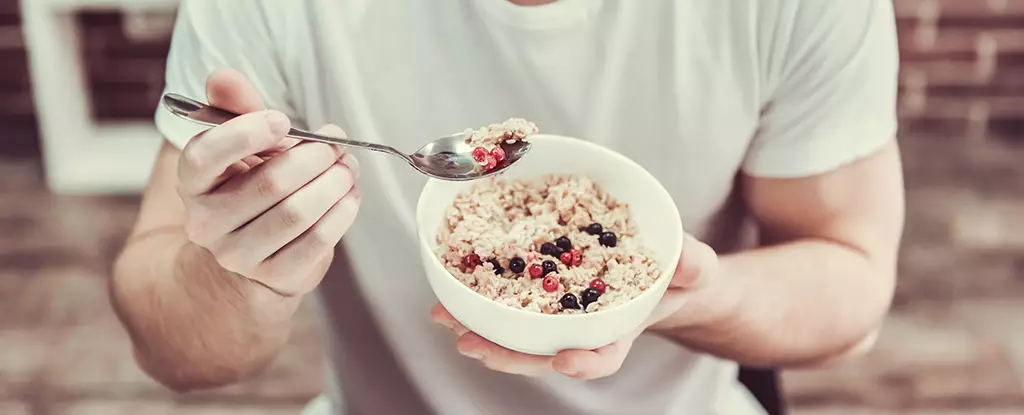High-protein, low-carb diets have long been hailed as the go-to method for bodybuilders looking to build muscle and shed fat. However, recent insights from bodybuilding champion Mark Taylor challenge this conventional wisdom. Taylor, a 52-year-old who clinched the “Mr Universe” title in 2023, attributes his success not to a high-protein, low-carb diet, but rather to embracing carbohydrates. This departure from the norm raises questions about the efficacy of traditional dietary practices in the bodybuilding community.
To achieve muscle gains, training is an indispensable component. Progressive overload training, characterized by increasing weights or the intensity of exercises, stimulates muscle development. Muscle growth results from a delicate interplay between “muscle protein synthesis” and “muscle protein breakdown.” While proteins are crucial for providing the necessary amino acids for muscle building, other nutrients like fats, vitamins, and minerals also play a role. Furthermore, consuming adequate calories is essential to support intense training regimens and promote muscle development.
Contrary to the belief that low-carb diets are optimal for fat loss and muscle gain, carbohydrates play a vital role in providing energy for workouts. Carbs, in the form of glucose stored as glycogen in muscles, fuel intense training sessions and contribute to muscle protein synthesis. While some studies suggest pairing carbs with protein post-workout enhances muscle protein synthesis, the direct impact of carbs on this process is limited. However, carbs can influence the rate of muscle protein breakdown by triggering insulin production.
Bodybuilders often undergo ‘bulking’ and ‘cutting’ phases to maximize muscle mass and reduce body fat. While low-carb diets may aid in shedding excess fat, they can lead to decreased energy levels, weakened immunity, and hormonal imbalances. The choice of carbs, such as opting for low or high glycemic index foods like sweet potatoes or pasta, can impact energy levels, recovery, and overall health. Balancing low and high GI foods throughout the day may offer a comprehensive strategy for training and muscle growth.
Taylor’s success story challenges the belief that high-protein, low-carb diets are the sole path to achieving a sculpted physique. By prioritizing carbs and adjusting his dietary approach, Taylor demonstrated that personalized nutrition plans can yield significant results in bodybuilding. The key lies in understanding the unique needs of your body, including the right balance of macronutrients, to support muscle growth and optimize performance.
While high-protein, low-carb diets have been traditionally favored in bodybuilding circles, individualized approaches that incorporate carbs may offer a more sustainable and effective path to achieving muscle gains. By reassessing traditional dietary norms and tailoring nutrition plans to fit personal needs, bodybuilders can unlock their full potential and achieve their desired physique. So, if you’re struggling to see results in your bodybuilding journey, it might be time to reconsider the role of carbohydrates in your diet.


Leave a Reply